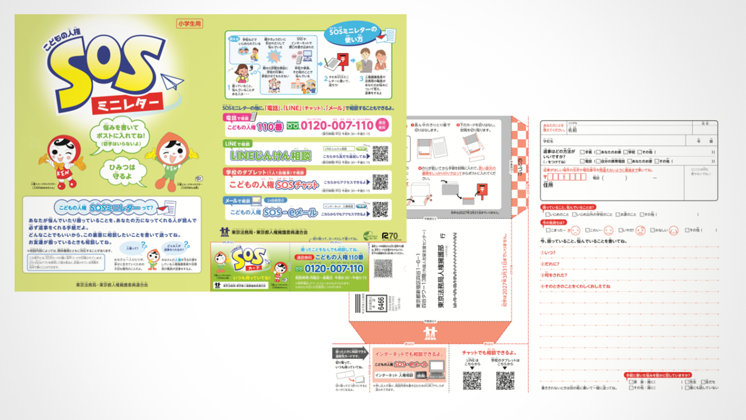But under the guise of protecting human rights, these “Children’s Human Rights SOS Mini-Letters” actually perpetuate harmful stereotypes about religious minorities.
That’s why a panel of United Nations human rights experts are sounding the alarm over the discriminatory materials. “Rather than protecting children who belong to religion or belief minorities, these materials risk contributing to their bullying and marginalization,” they wrote in a statement. The materials therefore do everything but protect the nation’s children from abuse.
Those discriminatory directives form the basis of pamphlets now in the hands of every elementary and junior high school student in Japan.
The pamphlets, experts noted, were drafted using the 2022 government guidelines that furnish a ready-made script for anyone seeking to condemn a faith under the perilously vague label of “child abuse related to religious beliefs.” Under such a label, any belief or practice—no matter how peaceful or sincere—is left vulnerable to attack, including Jehovah’s Witnesses for their avoidance of birthday celebrations, as well as Jews, Muslims and Hindus for their dietary laws.
The UN experts note: “We have received credible reports that religion or belief minorities, including Jehovah’s Witnesses, have … found themselves under increased scrutiny from authorities even when engaging in legitimate religious activities in line with article 18 of the International Covenant on Civil and Political Rights, such as praying with children, or opting out of certain [secular] activities on religious grounds.”
The SOS mini-letter pamphlets are the latest chapter in Japan’s religious freedom tailspin. The crisis began in July 2022 when the disgruntled son of a member of the Unification Church (UC) assassinated Japan’s former prime minister, Shinzo Abe, over his friendly relations with the UC. But rather than pursue the assassin—who has yet to go to trial—the government, incredibly, targeted the Church. As a result, the tragedy provided religious bigots with an excuse to crack down on all faiths with a flurry of new repressive laws.

Then, the Japanese Ministry of Health, Labor and Welfare released the guidelines behind the current “child abuse” pamphlets, prompting four United Nations Special Rapporteurs—on freedom of religion, education, expression and assembly—to denounce the Ministry’s directives. The UN representatives noted that an anti-cult (read anti-religion) group had helped draft the guidelines, which “may constitute a violation of the principles of neutrality and non-discrimination, as well as potentially contributing to further stigmatization and suspicion of religious or belief minorities.”
Those discriminatory directives form the basis of pamphlets now in the hands of every elementary and junior high school student in Japan, “educating” them on the “dangers” of religion.
Though the “dangers” religion poses to society is a fantasy born of hate and fear, the Japanese government’s actions in kowtowing to anti-faith elements represent a very real and present danger to religion.
By way of egregious example, a recent reinterpretation of existing Japanese law now allows civil court losses to justify the dissolution of religious organizations. That means if your faith practice violates these biased guidelines and you lose a civil case, you can also lose your religion—and religious freedom itself.
It’s already happened to the UC. In 2022, a group of lawyers—avowed anti-religionists—claimed there had been civil court rulings in recent years against the Church and its donation-gathering activities, cases long since resolved. But by October of the following year, Japan’s Education Ministry filed a request with the Tokyo District Court to disband the entire religion. Accordingly, this March, the court ordered the Church dissolved, its tax-exempt status revoked and its assets liquidated—depriving 600,000 parishioners of their rights as a religious community overnight, with nothing more than the stroke of a pen.
It’s a diabolical dance—destroying human rights in the name of human rights—and the orchestra playing the familiar tune of bigotry is made up of the anti-religion forces of Japan.
If Japan continues to use vague terms like “public welfare” and “social appropriateness” to shut down the peaceful practice of a religion, it may well be found in violation of the International Covenant on Civil and Political Rights (ICCPR), a multilateral treaty protecting fundamental rights, including religious freedom. Unlike the Universal Declaration of Human Rights, the ICCPR is a legally binding treaty for those countries that have ratified it, including Japan.
“We are concerned that the continued use and re-use of the [government] guidelines’ discriminatory framing reflects a broader pattern of targeting religion or belief minorities for surveillance and administrative harassment,” the UN experts said.
Which religious minority is next?
Mine? Yours?






















